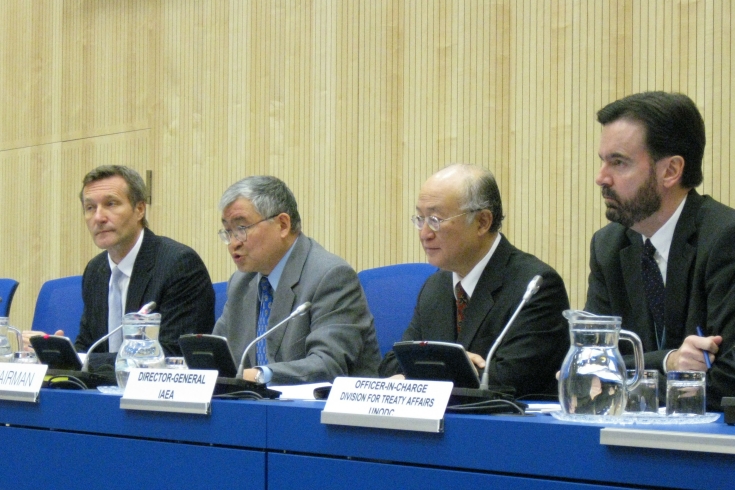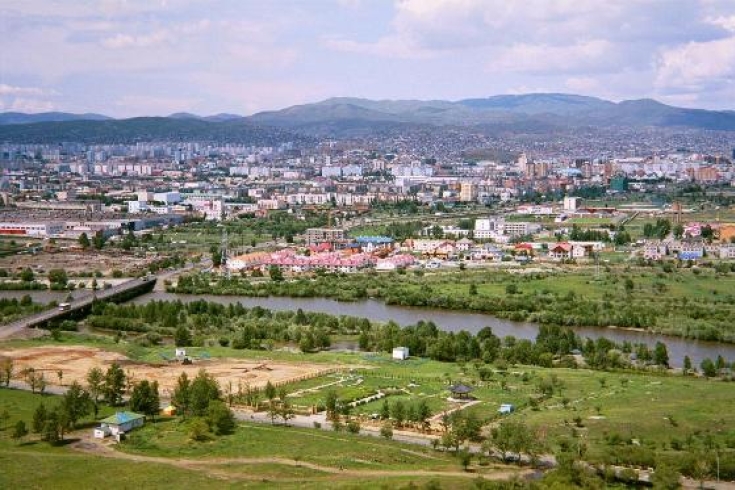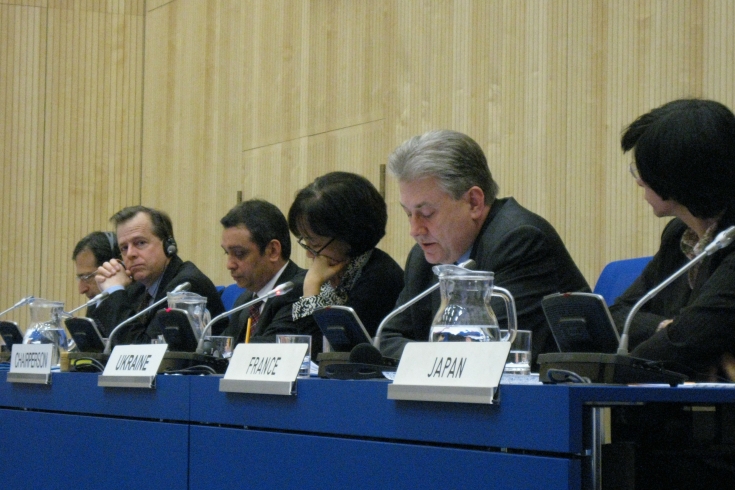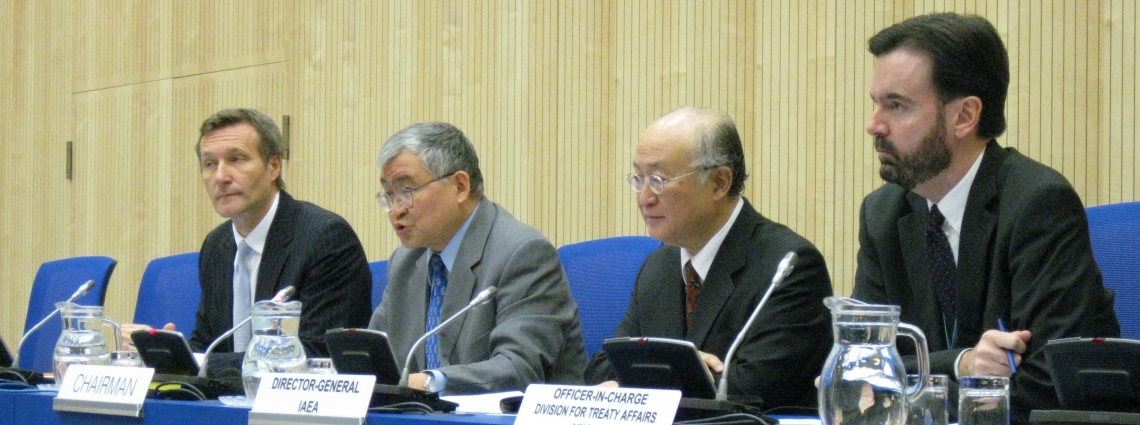Diplomats consider 2010 a Crucial Year for the Non-Proliferation Regime
The Test Ban and Nuclear-Weapon-Free Zones
“Complementarities between NWFZs, the NPT and the Comprehensive Nuclear-Test-Ban Treaty (CTBT) run like a steel thread through the nuclear nonproliferation and disarmament regime,” explained Jean du Preez, Chief of External Relations and International Cooperationthe at the Preparatory Commission for the Comprehensive Nuclear-Test-Ban Treaty Organization (CTBTO). “The CTBT provides a powerful verification mechanism to NWFZs,” he added, explaining how both NWFZs and the CTBT apply equally to all States and complement each other. “The right of States to declare entire regions free of nuclear weapons and the decades-long quest for a CTBT have been integral to the NPT’s conception,” concluded du Preez.

From left to right, Mr. Tibor Tóth, CTBTO Executive Secretary, Mr. Enkhsaikhan Jargalsaikhan, Mongolia's ambassador, Mr. Yukiya Amano, IAEA Director General, and Mr. John Sandage, Deputy Director UNODC.
Ulaanbaatar, Mongolia’s capital, will soon host a CTBTO two-day regional workshop. The purpose of the 15-17 March 2010 meeting is to increase awareness on the importance of worldwide membership in the CTBT and its entry into force. It will also serve to increase national capacity on legal and technical matters related to the CTBT. “The workshop will provide a timely opportunity to engage States in the region on the importance of further steps to advance the Treaty,” said Annika Thunborg, the CTBTO’s Chief of Public Information. “It will also be an opportunity to engage on interrelated issues such as legal national implementation, civil and scientific applications, as well as capacity-building needs,” Thunborg added.
Mongolia offers an excellent location for the regional workshop gathering Central Asian States like Kazakhstan, Kyrgyzstan, Tajikistan, Turkmenistan and Uzbekistan, and bordering countries including China and the Russian Federation. Other countries invited include Afghanistan, Armenia, Azerbaijan, Bangladesh, Bhutan, Cambodia, Georgia, India, Indonesia, Pakistan, Brunei Darussalam, Maldives, Myanmar, Nepal and Sri Lanka. Besides the CTBTO’s representatives from political, legal and technical divisions, other international and regional organizations and speakers from a number of other countries have been invited to participate.

Ulaanbaatar, Mongolia’s capital and its largest city, will soon host a CTBTO two-day regional workshop.
“If you don't know where you are going, any path will take you there,” Tibor Tóth cautioned the Vienna meeting of diplomats, recalling the Cheshire cat from Lewis Carroll's Alice's Adventures in Wonderland. Talking about the key year 2010, the CTBTO's Executive Secretary underlined the fact that “the way we are doing things right now might mean we are not on the right path. Due to lack of action, we are already embarking on the other path.”
2010 a key year for the NPT
“The year 2010 marks one of the most important moments in the NPT’s history,” stated du Preez, summarizing a widely held view. “The current global political climate provides an opportunity for a successful NPT Review Conference,” said Enkhsaikhan Jargalsaikhan, Mongolia’s Permanent Representative in Vienna. Nevertheless, “non-proliferation cannot be attained without disarmament,” stressed the Egyptian Ambassador, Ehab Mohamed Mostafa Fawzy. “The CTBT constitutes an effective measure of nuclear disarmament and nonproliferation in all its aspects,” read Tóth’s address.

“Reinforcing the Nuclear Non-Proliferation Treaty (NPT): Challenges and Opportunities” - roundtable discussion in Vienna on 16 February 2010.
The CTBT bans all nuclear explosions. It has been ratified by 151 States and signed by 182. China, the Democratic People’s Republic of Korea, Egypt, India, Indonesia, Iran, Israel, Pakistan and the United States still have to ratify for the Treaty to enter into force. Another 35 States have either not signed (10 States) or not ratified (25 States) the Treaty. “Our biggest challenge is to make sure that security is sought through cooperation,” Tóth told the meeting. “Japan attaches great importance to the early entry into force of the CTBT,” said the Japanese Ambassador, Takeshi Nakane. “We have to get states that have not yet done so to ratify the CTBT,” concluded Florence Mangin, the French Ambassador.

From left to right, the ambassadors of Egypt, the United States, Indonesia, Ukraine, and France discussing the challenges ahead.
19 Feb 2010
